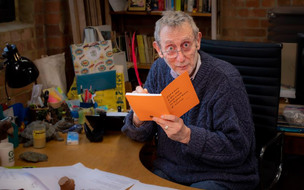WORRIES over bus services in Barnsley - said to be on a ‘cliff edge’ due to unreliable vehicles, fare hikes and axed routes which have cut off communities - could lead to them being brought back into public control under plans revealed this week.
South Yorkshire’s four council leaders - including Sir Steve Houghton - will hold crunch talks with Mayor Dan Jarvis, who is also MP for Barnsley Central, to discuss the feasibility of starting a county-wide franchise.
Customers’ satisfaction is low, with many councillors in Barnsley criticising buses for not turning up and routes being culled.
Costs of the assessment exercise are forecast to be in the region of £3m and to complete the would-be franchising plan, it’s anticipated a further £2m would be required.
A joint statement, signed by Mr Jarvis and Coun Houghton, said: “We are deeply concerned that the government’s failure to extend financial support for local public transport will very soon lead to devastating consequences for our bus system, sentencing passengers to fare rises and service cuts.
“This directly undermines the transformational change government and operators say they want - hamstringing efforts to get people back on the buses and instead recklessly locking in the damage Covid has done.
“Passenger numbers are still well below pre-pandemic levels and we understand that creates genuine pressures, but with Covid-19 cases still very high, and work-from-home mandates only just lifted, assumptions about the prospects for a full recovery are premature.
“Instead of fuelling decline, we ask government and operators to work with us on a strategy to manage the challenges we face and avoid long-term harm.”
Barnsley leaders want a fare cap, free travel for under 18s, fresh investment in greener buses and route improvements.
“All those plans will be sabotaged if they allow bus services to fall off a cliff edge in a few weeks’ time,” the statement added.
“We’re investing our local resources to make it happen, but we can’t realise the transformation we need if government and operators do not do their bit.
“If they walk away at this critical moment, they will bear responsibility for the consequences.”
Bus network bosses cited the knock-on impact of the pandemic and dwindling government subsidies for having a detrimental impact on service delivery.
Sir Steve said there was ‘a lot of water to go under the bridge’ in terms of financing the scheme and it posed ‘the biggest financial risk’ to public transport.
He called on central government to properly put up the funds for bus services.
“We must be aware of what the consequences might be,” he said. “I suspect most would like to see public transport be just that - public.
“Franchising of buses is a very long, very complex and very expensive process.
“I would like to go down that route as a matter of principle because I believe in transport being public, but I’d like to know what we’re getting ourselves into.”
Fran Postlethwaite, from Jump, represents the Better Buses for South Yorkshire campaign group and backed the franchising model.
She said: “Passengers in Barnsley are sick to the back teeth of unreliable buses, axed routes and infrequent timetables.
“Public control was identified as the best way to deliver improvements to our services.
“We need a service that prioritises the needs of passengers, one which reinvests profits back into the service instead of to shareholders, allows income from profitable routes to be used to fund other necessary but less used routes and has a simple, flat-rate fare.
“Only franchising can give us these benefits as local leaders will decide routes, fares, ticketing and timetables.
“There really is no alternative - since 1986, bus use in our region has reduced by 50 per cent but in London, where they have franchising, use doubled between 1986 and 2016.
“If we leave our buses in private control, the service will continue to decline.”



























